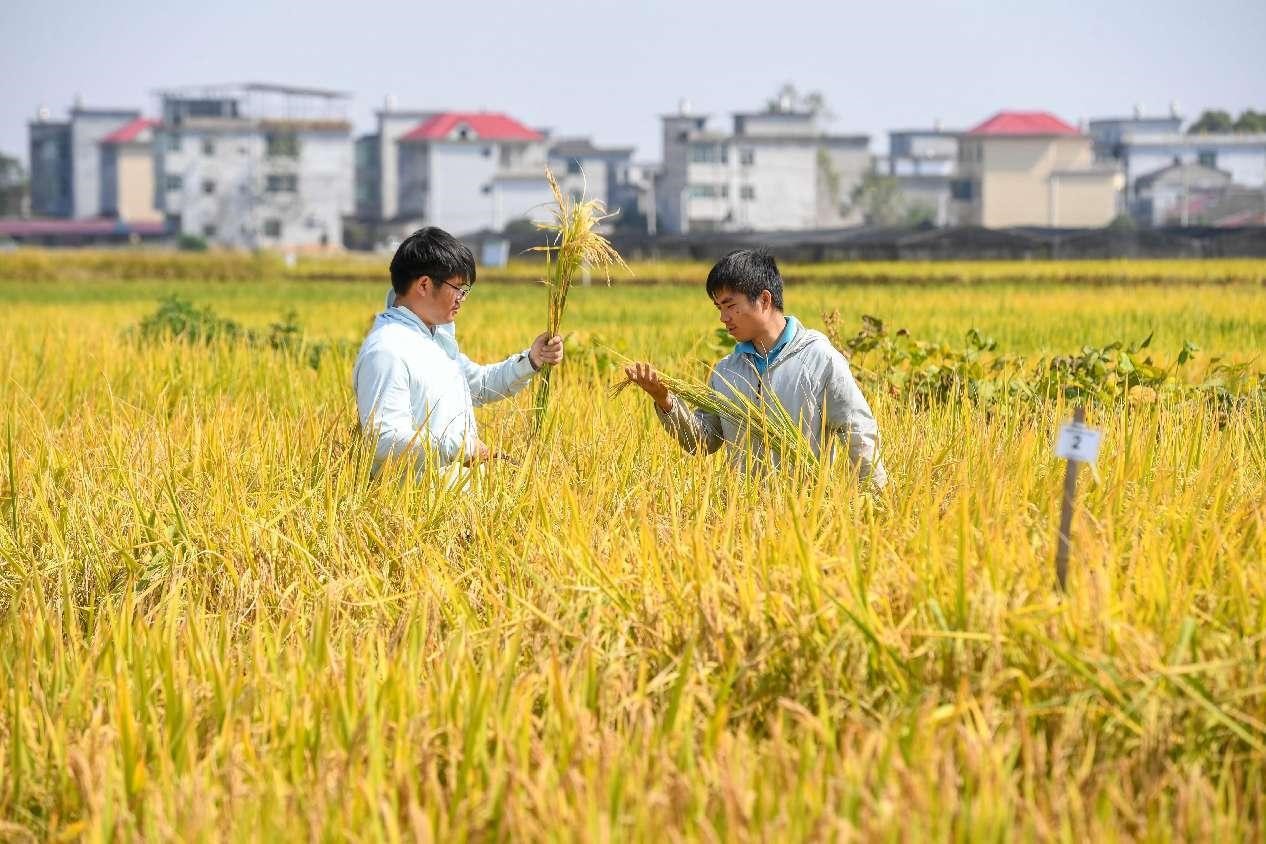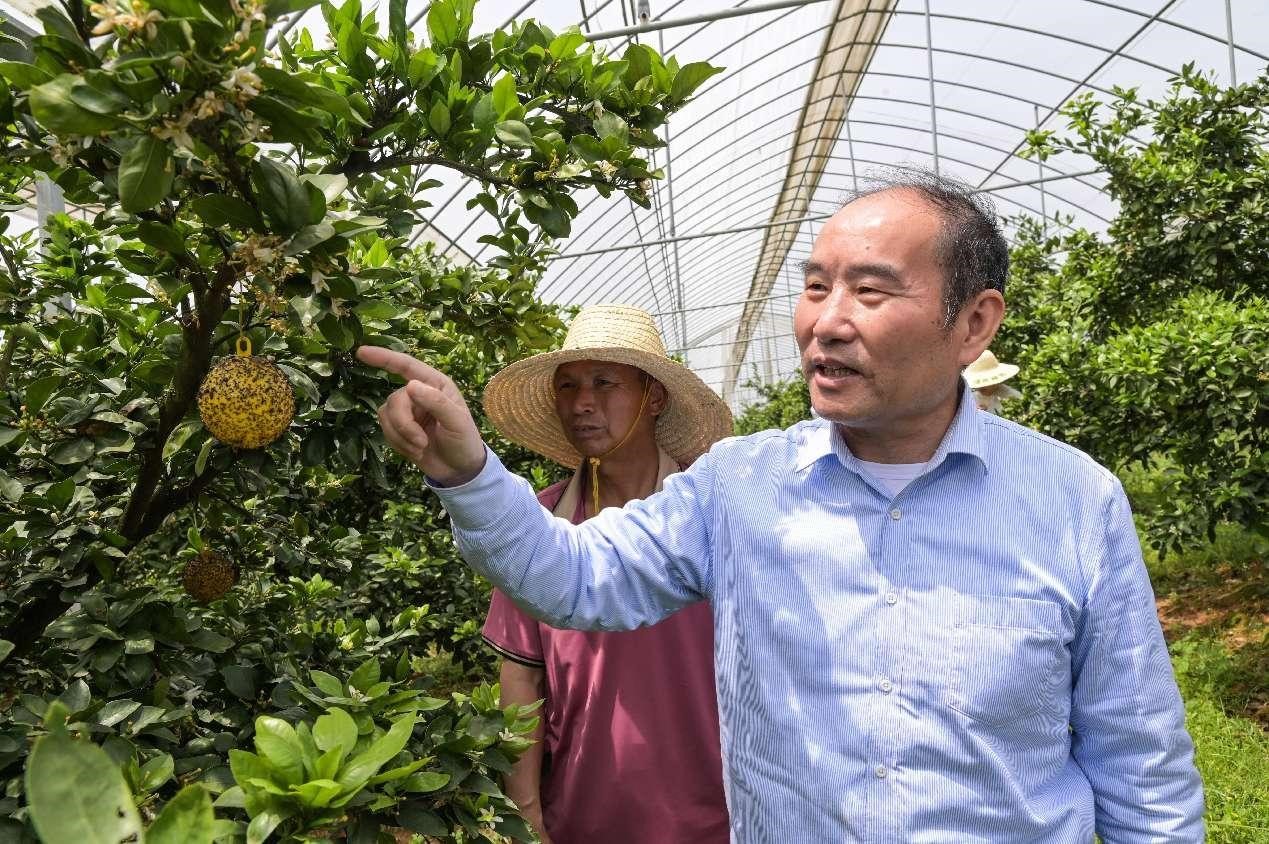




- BRNN
- BRI News
- BRNN News
- Database
Official Documents Polices and Regulations
Inter-government Documents International Cooperation BRI Countries
Business Guide Economic Data BRI Data
Trade
Investment Projects Latest projects
Cases - Content Pool
"We reached over 10 cooperation intentions, covering agricultural technology promotion, scientific research innovation, and agricultural product sales," said Ye Youliang, a professor with the school of resources and environment at Henan Agricultural University, at the exhibition hall of the university's science and technology backyard on the Longzihu campus.
According to the professor, the science and technology backyard received over 20 major growers and heads of cooperatives across Henan province during the seven-day National Day holiday.
Science and technology backyard is an initiative that "moves classrooms into the fields." It is conducive to exploring new models of agricultural technology promotion and talent cultivation according to local conditions.

Two graduate students working at a rice science and technology backyard in Shanggao county, Yichun, east China's Jiangxi province, take rice samples in a paddy field. (People's Daily Online/Zhou Liang)
Since setting up Henan's first science and technology backyard in 2012, Henan Agricultural University has built 24 such facilities at the national level, bringing over 100 faculty members and more than 1,000 students to the fields to help improve people's livelihood while advancing their studies.
Science and technology backyards provide farmers with technical support. Take the science and technology backyard in Henan's Yuzhou as an example. By providing agricultural technology training courses, introducing new varieties, and promoting techniques such as soil testing and formulated fertilization, as well as efficient farming, the science and technology backyard has continuously improved the per unit yield of wheat and corn for local farmers.
Despite continuous rains last year, the yield of three technology demonstration households exceeded 500 kilograms per mu, or about 667 square meters. The purchase price stood at around 2.5 yuan ($0.35) per kilogram, about 0.4 yuan higher than that of the average rain-affected wheat.
Rooted in rural areas and offering assistance for farmers, science and technology backyards streamline the entire process of agricultural production from planting to harvesting through its technological services.
Science and technology backyards drive the reform of talent cultivation models. At the science and technology backyards, students are required to not only provide guidance to farmers in the fields and give lectures to them, but also engage in research and paper writing.
Sampling, weighing, and preparing reagents are the most frequently cited words in the work logs of the science and technology backyards of Henan Agricultural University. With their intelligence and efforts, faculty members and students provide strong support for local agricultural production.
Over the past decade, faculty members and students working for the science and technology backyards run by Henan Agricultural University have authored more than 10 popular science books, published over 100 academic papers in domestic and international journals, and compiled 15 technical specifications.
Moving classrooms to the fields and making innovative explorations, science and technology backyards allow faculty members and students to use what they learn, thus better helping them grow into qualified scientific personnel who know how to develop agriculture.

A professor with Jiangxi Agricultural University offers technical guidance on pest control to a local fruit farmer at a science and technology backyard in Ji'an, east China's Jiangxi province, April 18, 2024. (People's Daily Online/Li Fusun)
Science and technology backyards are an important platform promoting innovation in agricultural technology. In response to issues such as unreasonable fertilization and heavy land re-cropping, the science and technology backyard in Qixian county, Henan collected more than 1,000 soil samples and launched specialized fertilizers and seed dressing agents for garlic. It also developed integrated simplified high-yield and efficient green cultivation techniques for garlic. This has resulted in a reduction of costs by over 30 percent and a 15 percent increase in yield.
In the northern part of China, the calcareous soil often lacks zinc. The science and technology backyard in Henan's Lankao county, through variety selection and the development of zinc fertilizer products and relevant application techniques, has increased the zinc content in wheat and corn grains by over 15 percent.
By harnessing the power of technology and promoting the integration of production, education, research, and application, it is possible to expand the boundaries of agricultural production and promote the comprehensive upgrading of the entire agricultural industrial chain.
With science and technology backyard projects serving as a fulcrum and industrial alliances as a key driver, more new models of agricultural development could be explored.
Henan Agricultural University and Henan Xinlianxin Chemicals Group Co., Ltd. have jointly established science and technology backyards in Qixian and Xinxiang, focusing on soil improvement in low-yield fields affected by soil desertification and salinization, and jointly formulating high-yield, efficient, and green planting plans for crops.
Yongfeng county in east China's Jiangxi province and Jiangxi Agricultural University have co-established a vegetable science and technology backyard, deepening the cooperation among leading enterprises, demonstration bases, science and technology backyard and professional vegetable farmers. This project has trained over 40,000 new professional vegetable farmers.
The exploration of new models of cooperation among enterprises, universities and research institutions, coupled with science and technology backyard projects as a bridge of innovation, will foster a stronger virtuous cycle between agricultural development and technological progress.
Each science and technology backyard serves its local community by improving production efficiency and stimulating regional industrial development. Through the continued expansion of this model across rural areas, China is creating broader pathways to rural prosperity while strengthening its position as an agricultural powerhouse.

Tel:86-10-65363107, 86-10-65368220, 86-10-65363106